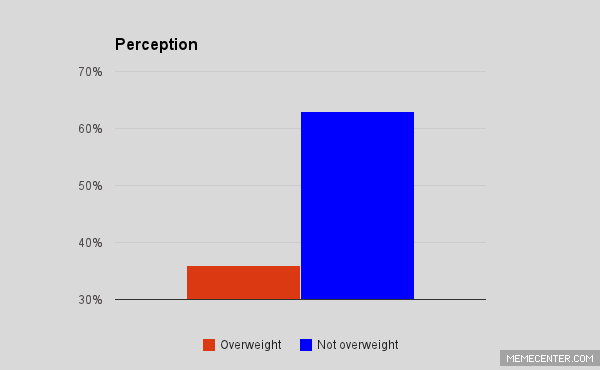NEW YORK—Like so many mornings before, Allie Corless went cycling in Central Park on Tuesday. Like many other cyclists in recent days, she then encountered a speed trap. Corless was given a $140 fine for exceeding a 15-mph limit.
Greg Lowdermilk, an amateur competitive cyclist, was training in Central Park around the same time. At 6:55 a.m., he entered a speed trap near 77th Street on the west side of Central Park; two unmarked police cars and four policemen stopped him. Lowdermilk, who is a member of several cycling associations and usually well informed about these matters, was not aware of the 15-mph limit.
The Central Park’s speed limit for bicycles is actually 25 mph—the police officers apparently got confused by a set of outdated signs posting the limit of 15 mph.
Corless and other cyclists who had gotten tickets on Tuesday were even more surprised to find police officers making house calls to apologize for the speeding tickets. About 10 speeding tickets issued to Central Park cyclists on Tuesday were canceled; Lowdermilk’s ticket was among these, although officers did not come to his house personally. The NYPD confirmed the story, but would not cite the exact number of the voided tickets.
According to the Transportation Alternatives (TA), NYPD has been harassing cyclists in Central Park and Prospect Park in recent months. The police gave out 160 tickets to drivers speeding through Central Park in 2010 but has already issued 230 tickets to cyclists since January 2011, claims the bicycling, walking, and public-transit advocacy group.
“The NYPD is writing tickets for laws that don’t exist. The speed limit in Central Park was not known to them when they started this blitz,” asserted Paul Steely White, TA’s executive director. The advocacy group has also received complaints from cyclists who got tickets for not wearing a helmet, even though the law does not require it, he said.
“It is true that we need to get revenue, but we should not target particular groups [when] trying to get the revenue the city needs,” said Councilman Ydanis Rodriguez on the steps of City Hall on Wednesday. He proposed a new bill that would prevent similar clashes between NYPD and the cycling community in the future.
The legislation calls for installation of blinking yellow traffic lights in Central Park and other city parks during hours when parks are closed to car traffic. A flashing yellow light would give the right of way to pedestrians, but would also allow cyclists to cross without stopping when the road is clear. If the measure is passed, cyclists will not be in danger of getting a ticket for running a light.
“We all want safe streets,” said Councilman Brad Lander, who announced the new bill together with Rodriquez. “Safe streets require smart enforcement.”
Lander noted that NYPD has the technology to target roads that are known to be dangerous. “If our goal is safe streets, giving out tickets to people who are riding fast in Prospect Park and Central Park is not a way that we are going to effectively use police resources,” he said.
Councilwoman Gale Brewer on Wednesday proposed legislation that would ban cars from driving in the Central Park loop and the Prospect Park loop. The bill cites data from the Transportation Alternatives, which indicates that vehicle traffic around Prospect Park and Central Park is at all-time low and would not negatively affect congestion in neighboring areas.
Greg Lowdermilk, an amateur competitive cyclist, was training in Central Park around the same time. At 6:55 a.m., he entered a speed trap near 77th Street on the west side of Central Park; two unmarked police cars and four policemen stopped him. Lowdermilk, who is a member of several cycling associations and usually well informed about these matters, was not aware of the 15-mph limit.
The Central Park’s speed limit for bicycles is actually 25 mph—the police officers apparently got confused by a set of outdated signs posting the limit of 15 mph.
Corless and other cyclists who had gotten tickets on Tuesday were even more surprised to find police officers making house calls to apologize for the speeding tickets. About 10 speeding tickets issued to Central Park cyclists on Tuesday were canceled; Lowdermilk’s ticket was among these, although officers did not come to his house personally. The NYPD confirmed the story, but would not cite the exact number of the voided tickets.
According to the Transportation Alternatives (TA), NYPD has been harassing cyclists in Central Park and Prospect Park in recent months. The police gave out 160 tickets to drivers speeding through Central Park in 2010 but has already issued 230 tickets to cyclists since January 2011, claims the bicycling, walking, and public-transit advocacy group.
“The NYPD is writing tickets for laws that don’t exist. The speed limit in Central Park was not known to them when they started this blitz,” asserted Paul Steely White, TA’s executive director. The advocacy group has also received complaints from cyclists who got tickets for not wearing a helmet, even though the law does not require it, he said.
“It is true that we need to get revenue, but we should not target particular groups [when] trying to get the revenue the city needs,” said Councilman Ydanis Rodriguez on the steps of City Hall on Wednesday. He proposed a new bill that would prevent similar clashes between NYPD and the cycling community in the future.
The legislation calls for installation of blinking yellow traffic lights in Central Park and other city parks during hours when parks are closed to car traffic. A flashing yellow light would give the right of way to pedestrians, but would also allow cyclists to cross without stopping when the road is clear. If the measure is passed, cyclists will not be in danger of getting a ticket for running a light.
“We all want safe streets,” said Councilman Brad Lander, who announced the new bill together with Rodriquez. “Safe streets require smart enforcement.”
Lander noted that NYPD has the technology to target roads that are known to be dangerous. “If our goal is safe streets, giving out tickets to people who are riding fast in Prospect Park and Central Park is not a way that we are going to effectively use police resources,” he said.
Councilwoman Gale Brewer on Wednesday proposed legislation that would ban cars from driving in the Central Park loop and the Prospect Park loop. The bill cites data from the Transportation Alternatives, which indicates that vehicle traffic around Prospect Park and Central Park is at all-time low and would not negatively affect congestion in neighboring areas.



